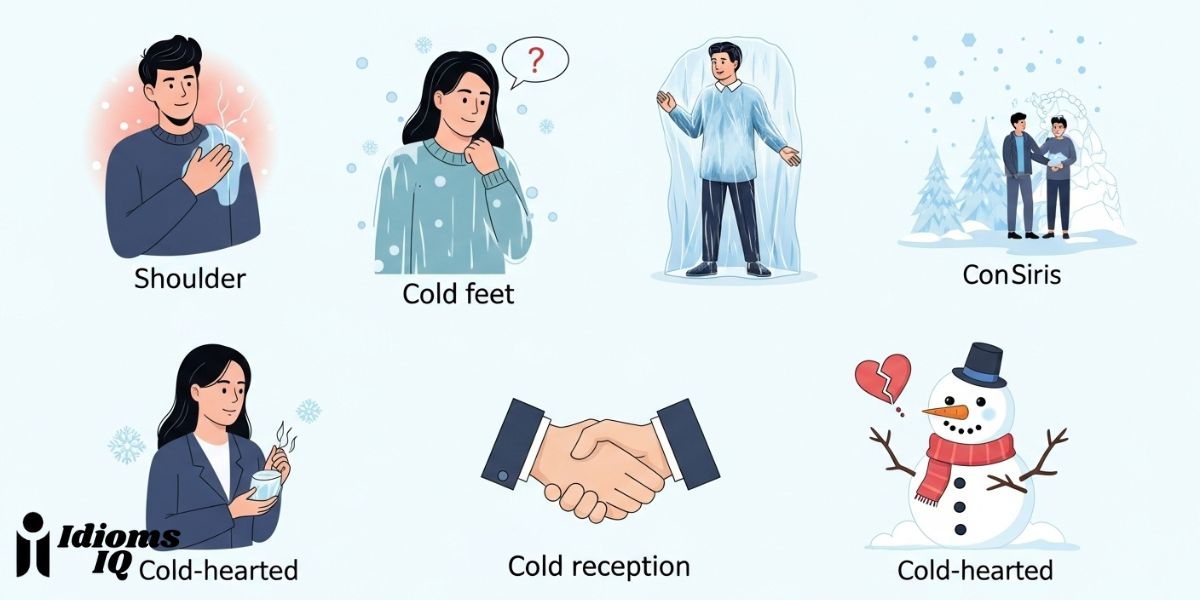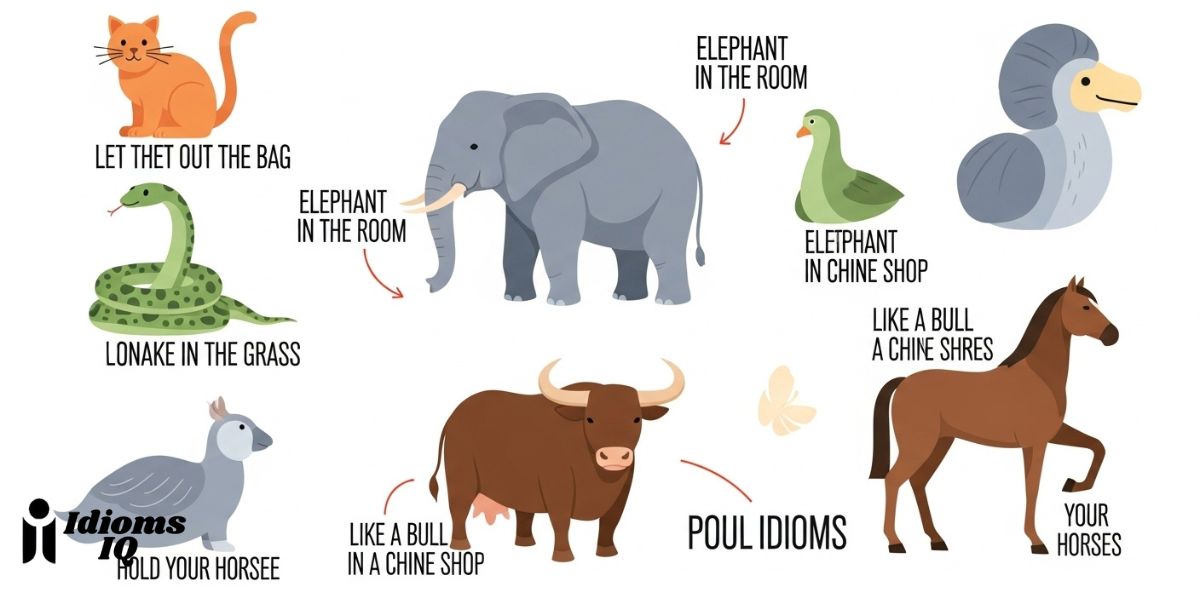
Idioms are the colorful threads that weave richness and nuance into the fabric of language. They are phrases where the meaning isn’t obvious from the individual words, but instead, they represent a more profound, often metaphorical, idea. Think of them as secret codes that, once understood, unlock a deeper level of communication and understanding. Animal idioms, in particular, draw on the rich symbolism we’ve attached to the creatures around us, using their perceived traits to shed light on our own human experiences.
A phrase like “the elephant in the room” instantly paints a picture of a large, obvious problem that everyone is avoiding. By using these vivid expressions, we can articulate complex emotions and situations with a clarity and creativity that literal language often lacks. Exploring these idioms doesn’t just expand our vocabulary; it inspires us to think more deeply about the connections between nature, human behavior, and the timeless truths of life. From elephants in the room to whales of a deal, many animal idioms describe size. Discover more in our list of idioms for big that expand your vocabulary.
Idioms For Animals
Here is a list of 40 popular idioms involving animals, along with their meanings, examples, and alternative phrases.
1. The elephant in the room
- Meaning: A major problem or controversial issue that is obviously present but avoided as a subject for discussion.
- Use in a sentence: We all sat there pretending everything was fine, but the fact that he was leaving was the elephant in the room.
- Other ways to say it: The unspoken issue, the big problem we’re ignoring, the awkward truth.
2. Let the cat out of the bag
- Meaning: To reveal a secret carelessly or by mistake.
- Use in a sentence: I was trying to keep the party a surprise, but my little brother let the cat out of the bag.
- Other ways to say it: Spill the beans, reveal a secret, give the game away.
3. Kill two birds with one stone
- Meaning: To achieve two aims at once.
- Use in a sentence: I can kill two birds with one stone by listening to my history podcast while I go for a run.
- Other ways to say it: Achieve two things at once, multitask effectively, solve two problems with one action.
4. A wolf in sheep’s clothing
- Meaning: A person who appears harmless but is actually dangerous or malicious.
- Use in a sentence: The charming salesman was a wolf in sheep’s clothing; he took everyone’s money and disappeared.
- Other ways to say it: A hidden enemy, a deceptive person, a snake in the grass.
5. Hold your horses
- Meaning: Wait a moment; don’t be so hasty.
- Use in a sentence: Hold your horses! We need to think about this plan before we invest all our money.
- Other ways to say it: Be patient, slow down, wait a minute.
6. A fish out of water
- Meaning: A person who feels uncomfortable or out of place in their surroundings.
- Use in a sentence: As a country boy, I felt like a fish out of water in the bustling city.
- Other ways to say it: To feel out of place, to not fit in, to be in an unfamiliar situation.
7. The lion’s share
- Meaning: The largest part or portion of something.
- Use in a sentence: As the CEO, he took the lion’s share of the profits.
- Other ways to say it: The biggest piece, the majority, the greatest portion.
8. Cry wolf
- Meaning: To raise a false alarm, to the point where no one believes you when there is real danger.
- Use in a sentence: He has cried wolf so many times about his health that nobody was concerned when he actually got sick.
- Other ways to say it: To give a false alarm, to be a liar, to mislead people.
9. A bull in a china shop
- Meaning: A clumsy person who is careless in a delicate situation.
- Use in a sentence: He was like a bull in a china shop during the negotiations, offending everyone with his bluntness.
- Other ways to say it: Clumsy, tactless, awkward and destructive.
10. Straight from the horse’s mouth
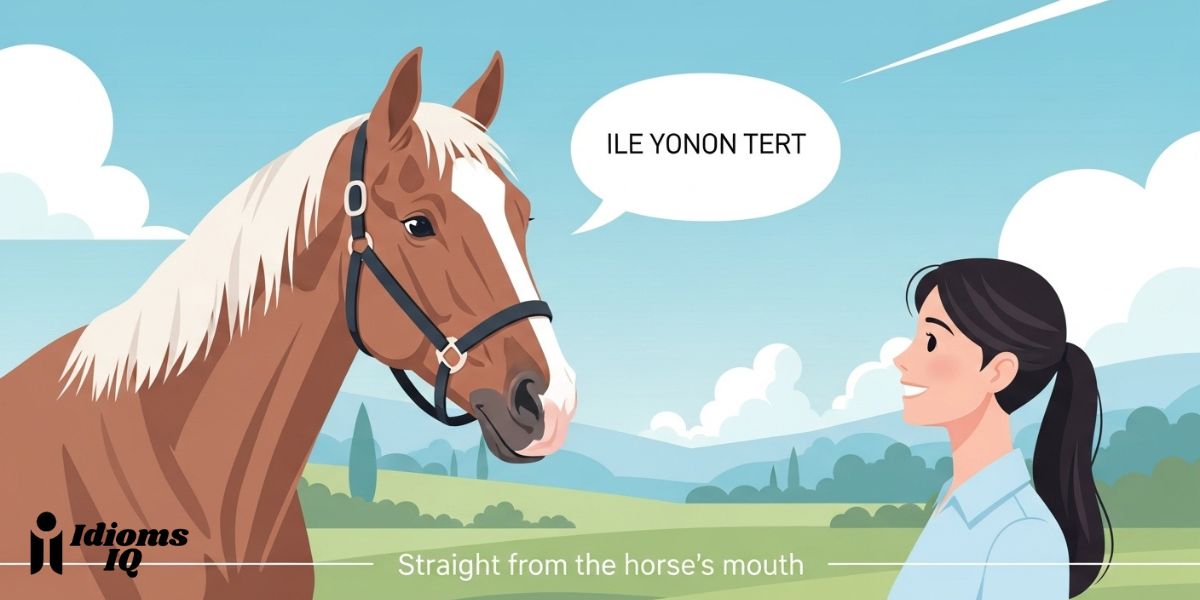
- Meaning: From the original or most reliable source.
- Use in a sentence: I know it’s true because I heard it straight from the horse’s mouth; the director told me himself.
- Other ways to say it: From a reliable source, directly from the source, firsthand information.
11. Raining cats and dogs
- Meaning: Raining very heavily.
- Use in a sentence: We had to cancel the picnic because it was raining cats and dogs.
- Other ways to say it: It’s pouring, a downpour, a deluge.
12. All bark and no bite
- Meaning: Tending to make threats but not deliver on them.
- Use in a sentence: Don’t worry about the new manager; he’s all bark and no bite.
- Other ways to say it: Full of empty threats, all talk and no action, not as scary as they seem.
13. A little bird told me
- Meaning: I heard something from a secret or unnamed source.
- Use in a sentence: A little bird told me it’s your birthday tomorrow.
- Other ways to say it: I heard a rumor, someone told me, it has come to my attention.
14. The world is your oyster
- Meaning: You have the freedom and ability to do whatever you want in life.
- Use in a sentence: After graduating from university, she felt like the world was her oyster.
- Other ways to say it: You have endless opportunities, you can achieve anything, the possibilities are limitless.
15. Monkey see, monkey do
- Meaning: A person or group copying the actions of another without understanding the reason for them.
- Use in a sentence: The children started using the same slang as the older kids—it’s a classic case of monkey see, monkey do.
- Other ways to say it: Mindless imitation, copying someone’s actions, following the crowd.
16. Get your ducks in a row
- Meaning: To get your things well organized.
- Use in a sentence: I need to get my ducks in a row before I start applying for new jobs.
- Other ways to say it: To get organized, to prepare everything, to be well-prepared.
17. Wild goose chase
- Meaning: A foolish and hopeless pursuit of something unattainable.
- Use in a sentence: The search for the mythical treasure turned out to be a wild goose chase.
- Other ways to say it: A pointless search, a futile effort, a fool’s errand.
18. Guinea pig
- Meaning: Someone who is a subject in an experiment or test.
- Use in a sentence: I don’t want to be the guinea pig for their new software update; I’ll wait until they fix the bugs.
- Other ways to say it: A test subject, an experimental case, the first to try something.
19. You can’t teach an old dog new tricks
- Meaning: It is very difficult to change someone’s established habits or character.
- Use in a sentence: I tried to show my grandfather how to use a smartphone, but you can’t teach an old dog new tricks.
- Other ways to say it: People are set in their ways, it’s hard to change old habits.
20. Curiosity killed the cat
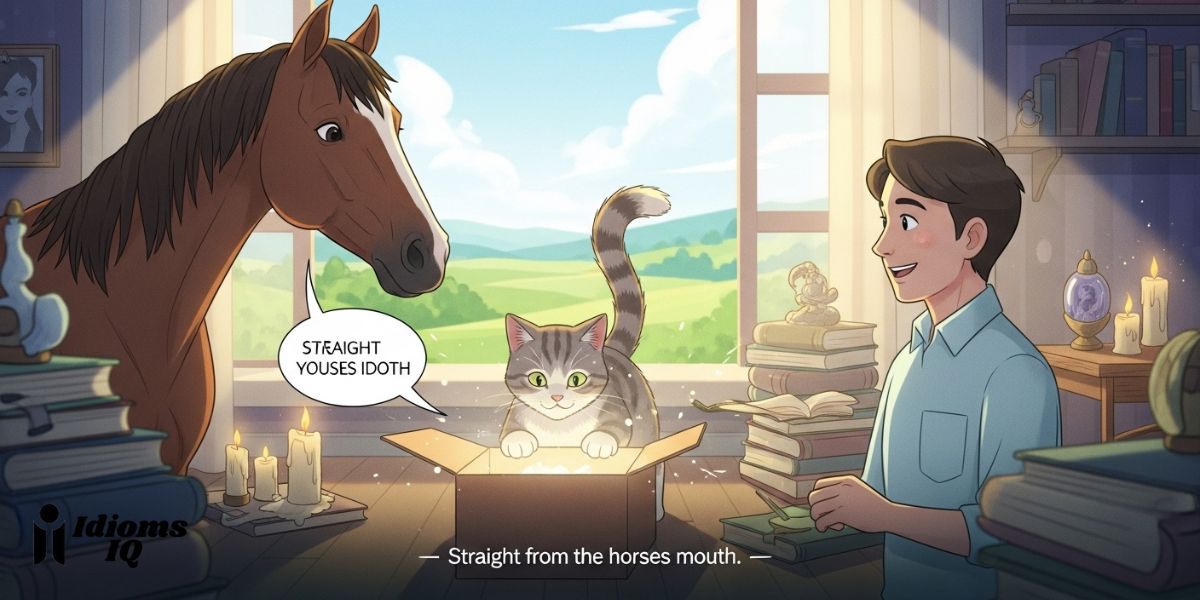
- Meaning: Being too inquisitive can lead you into an unpleasant situation.
- Use in a sentence: I know you want to know what’s in the box, but remember, curiosity killed the cat.
- Other ways to say it: Prying can be dangerous, mind your own business.
21. A bee in your bonnet
- Meaning: To be obsessed or preoccupied with an idea.
- Use in a sentence: She’s got a real bee in her bonnet about recycling and talks about it constantly.
- Other ways to say it: To have an obsession, to be fixated on something.
22. Busy as a bee
- Meaning: To be very active and busy.
- Use in a sentence: With the wedding just a week away, we’ve all been as busy as bees.
- Other ways to say it: Very busy, swamped, working hard.
23. Butterfly in my stomach
- Meaning: A nervous, fluttering feeling in one’s stomach.
- Use in a sentence: I had butterflies in my stomach before my big presentation.
- Other ways to say it: To feel nervous, to have jitters, to be anxious.
24. A cat nap
- Meaning: A short, light sleep.
- Use in a sentence: I’m just going to have a quick cat nap before we go out tonight.
- Other ways to say it: A short rest, a doze, a siesta.
25. Dog-eat-dog world
- Meaning: A world where people are ruthless and will do anything to be successful.
- Use in a sentence: The tech industry can be a dog-eat-dog world for new startups.
- Other ways to say it: A ruthless environment, fierce competition, every person for themselves.
26. Every dog has its day
- Meaning: Everyone will have a moment of success or good fortune eventually.
- Use in a sentence: Don’t be discouraged by your failures; every dog has its day.
- Other ways to say it: Everyone gets a chance eventually, success will come.
27. Go to the dogs
- Meaning: To deteriorate or become ruined.
- Use in a sentence: That part of town has really gone to the dogs in the last few years.
- Other ways to say it: To fall into ruin, to become worse, to deteriorate.
28. Let sleeping dogs lie
- Meaning: To avoid restarting a conflict or bringing up a past problem.
- Use in a sentence: I wanted to ask about their argument, but I decided it was best to let sleeping dogs lie.
- Other ways to say it: Don’t stir up trouble, leave the past in the past.
29. As stubborn as a mule
- Meaning: To be extremely obstinate and unwilling to change your mind.
- Use in a sentence: You can try to convince him, but he’s as stubborn as a mule.
- Other ways to say it: Very stubborn, inflexible, obstinate.
30. Smell a rat

- Meaning: To suspect that something is wrong or that someone is being deceptive.
- Use in a sentence: When he offered me a brand new laptop for only $100, I began to smell a rat.
- Other ways to say it: To be suspicious, to sense a trick, to feel that something is amiss.
31. The black sheep of the family
- Meaning: A person who is considered a disgrace or embarrassment to their family.
- Use in a sentence: He was always the black sheep of the family, choosing to be an artist instead of a doctor.
- Other ways to say it: The outcast, the odd one out, the family disgrace.
32. Have a whale of a time
- Meaning: To enjoy yourself very much.
- Use in a sentence: We had a whale of a time at the concert last night.
- Other ways to say it: To have a great time, to have a lot of fun, to enjoy immensely.
33. Open a can of worms
- Meaning: To create a complicated situation in which doing something to solve a problem leads to many more problems.
- Use in a sentence: Bringing up the old family feud would just open a can of worms.
- Other ways to say it: To create more problems, to complicate a situation, to stir up trouble.
34. The early bird gets the worm
- Meaning: The person who arrives first has the best chance of success.
- Use in a sentence: If you want to get the best seats, you have to get there early. The early bird gets the worm.
- Other ways to say it: Acting early brings success, the first to arrive has an advantage.
35. Like a deer in the headlights
- Meaning: To be so frightened or surprised that you cannot move or think.
- Use in a sentence: When the teacher asked him a question, he just stood there like a deer in the headlights.
- Other ways to say it: Frozen with fear, stunned, paralyzed by shock.
36. Don’t count your chickens before they hatch
- Meaning: Don’t make plans based on something good happening before it has actually happened.
- Use in a sentence: She already started planning her vacation with the bonus money, but I told her not to count her chickens before they hatch.
- Other ways to say it: Don’t get ahead of yourself, don’t assume success.
37. Eagle eyes
- Meaning: Someone who has very sharp vision or is very observant.
- Use in a sentence: The editor has eagle eyes and will catch any mistake in the manuscript.
- Other ways to say it: Very observant, keen-sighted, sharp-eyed.
38. Nest egg
- Meaning: A sum of money saved for the future.
- Use in a sentence: They have a nice little nest egg saved up for their retirement.
- Other ways to say it: Savings, retirement fund, rainy-day fund.
39. Take the bull by the horns
- Meaning: To deal with a difficult situation directly and with courage.
- Use in a sentence: It’s time to take the bull by the horns and have a serious talk with your boss about a raise.
- Other ways to say it: To face a problem head-on, to be brave, to act decisively.
40. To have ants in your pants
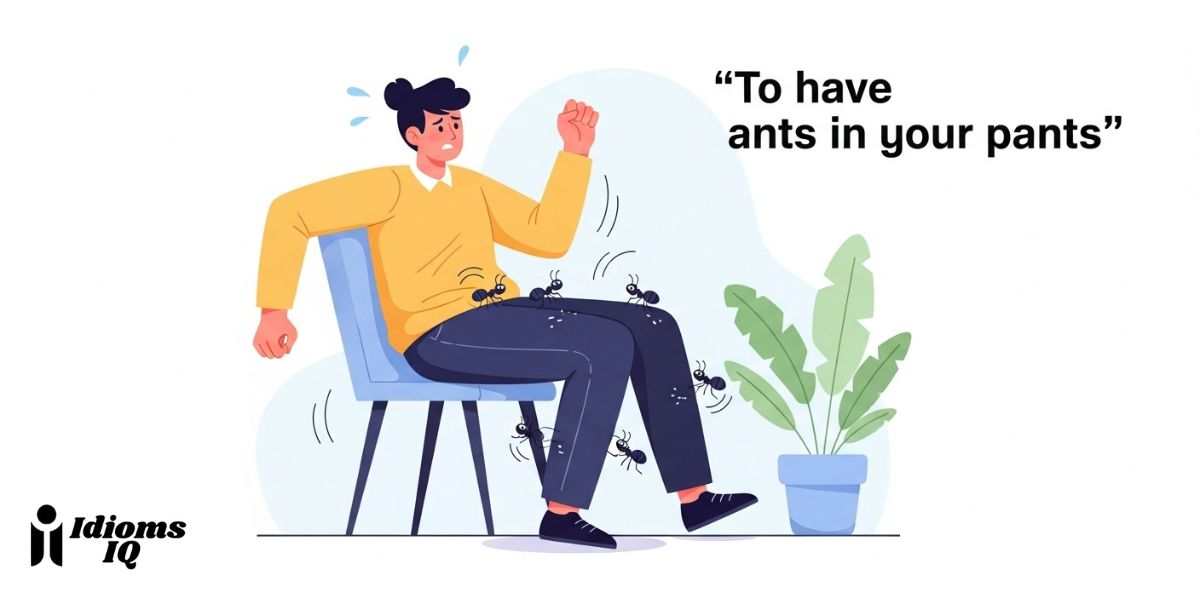
- Meaning: To be unable to sit still because of nervousness or excitement.
- Use in a sentence: The children had ants in their pants waiting for the party to start.
- Other ways to say it: To be fidgety, restless, unable to stay still.
Fill-in-the-Blank Exercise
Complete the following sentences with the correct animal idiom from the list above.
- I need to get organized before the big event; it’s time to ______________________.
- He offered me a deal that sounded too good to be true, and I started to ______________________.
- She’s been talking about her new project non-stop; she has a real ______________________.
- Don’t be so impatient! ______________________ and let’s think this through.
- I heard from a reliable source that we’re getting a bonus. I got it ______________________.
- The politician was a ______________________, promising reform but only seeking power.
- We all knew the company was failing, but no one wanted to discuss the ______________________.
- I felt like a ______________________ at the fancy gala, not knowing anyone.
- He makes a lot of threats, but he’s ______________________.
- By biking to work, I get exercise and save money on gas, allowing me to ______________________.
- We tried looking for the lost earring on the beach, but it was a __________ __________.
- I was so nervous before the interview that I had ______________________ in my stomach.
- He’s so clumsy; he’s like a ______________________ in a delicate situation.
- After years of hard work, he finally got the promotion he deserved. ______________________.
- Don’t tell Mom about the broken vase! Don’t ______________________.
Answer Key
- get your ducks in a row
- smell a rat
- bee in her bonnet
- Hold your horses
- straight from the horse’s mouth
- wolf in sheep’s clothing
- elephant in the room
- fish out of water
- all bark and no bite
- kill two birds with one stone
- wild goose chase
- butterflies
- bull in a china shop
- Every dog has its day
- let the cat out of the bag
Conclusion
Embracing idioms is more than just a linguistic exercise; it’s a way to enhance our perception of the world and our ability to connect with others. When we use a phrase like “take the bull by the horns,” we’re not just talking about a problem; we’re invoking a shared image of courage and decisiveness. Regularly incorporating these expressions into our vocabulary sharpens our communication, making our writing more vivid and our conversations more engaging.
Furthermore, understanding the emotions and situations encapsulated in idioms builds our emotional intelligence, allowing us to express our own feelings and understand others with greater empathy and precision. Ultimately, idioms are tools that help us navigate the beautiful complexity of life with more wisdom and color.


